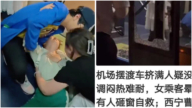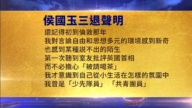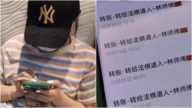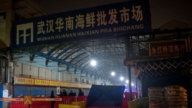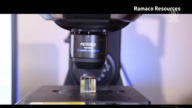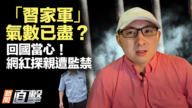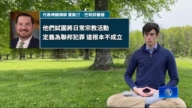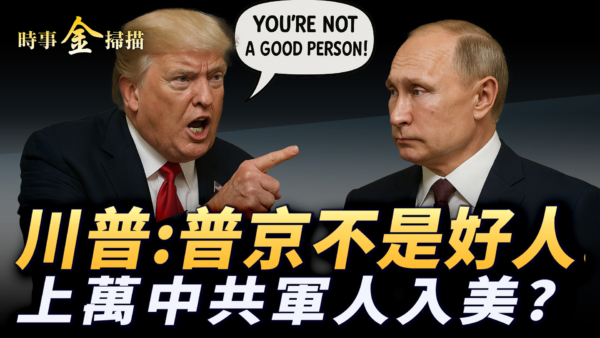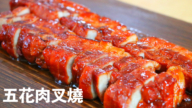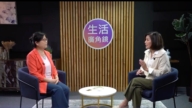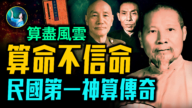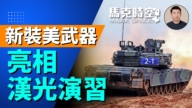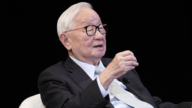【新唐人2013年07月27日讯】在中国做生意要小心了,因为有可能你一不小心就会锒铛入狱。近来,媒体盘点中国企业家可能惹上的十大罪状,中国企业家面临着复杂的法律环境。因此有人说,中国的企业家不是在监狱,就是在通往监狱的路上。
湖南前民营企业家曾成杰悄然无声的被处死,在中国企业界引起震撼。
曾成杰在被收押三个月后,他的资产被当局强行处置,资产价值从最初的评估报告23.8亿,层层递减,最终以3.3亿元出让给湖南省政府下属的国有企业,而关键的资产评估报告始终没有对外公布。
京衡律师集团董事长兼主任陈有西在媒体指出,按照中共现行法律逻辑和罪名,中国企业家人人都是带罪之身,只要经营五到十年,列上五个罪名,量刑搞到死刑一点问题没有。如果想用公检法的力量来剥夺一个企业、一个富人的财富,只是几分钟的事。
最近,有媒体整理出悬在中国企业家头上的“十宗罪”,一,虚报注册资本罪,二,虚假出资罪,三,抽逃出资罪,四,徇私舞弊低价折股、出售国有资产罪,五,私分国有资产罪,六,集资诈骗罪,七,非法吸收公众存款罪,八,高利转贷罪,九,虚报破产罪,十,非法经营罪。
山东律师付永刚:“是制度化的问题,是大环境之下的问题,所以如果要是完全按照法律办事,在中国,就是企业想要搞起来,几乎可以说是天方夜谭, 总之,完全靠合法的去做,很难形成一个大的企业,一个发展有前景的企业。”
有经济学家说,在中国,经济问题就是政治问题。
河北大午集团监事长孙大午:“肯定的,在这种体制下,很多人都没有安全感,这是很正常的,不光是企业家,就是各行各业人们都有这种不确定性,就是我们现在很多法律的东西,它体现不出它的公正性来。”
2003年,当局以“河北大午集团”监事长孙大午向三千多户农民借款一亿八千多万元,将他诱捕收押,罪名是“非法集资”。
孙大午:“当时我出来以后,被判有期徒刑3年,缓刑4年的时候我不能再做法定代表人,不能再当董事长。”
出狱后的孙大午,不愿自己幼小的儿子继承企业,可能在复杂的环境下遭受莫须有罪名。所以他决定效法隋朝的三朝六部制,和英国的君主立宪制,创立了“私企立宪、三权分立”。
孙大午:“让我的儿子接班呢,还驾驭不了,当时。所以就发明了这么一个大家都接受的制度,我们那个制度是搞民主选举董事长和总经理的。”
所谓“私企立宪”,就是民主选举、民主监督、民主决策、民主治理﹔“三权分立”,就是设立理事会、董事会、监事会,分别掌握经营权、决策权、所有权。
企业家要在中国生存下去,就必须走出一条路来。孙大午认为,民主制度是让资本说话,让工人说话,是一种劳资共和的体制,是一种价值的体现。
孙大午助理:“当时也是为了解决诸多的问题,企业就这套制度之下,虽然可能发展的速度会受到限制,但是也确保了它的稳定,其实他不是在办企业,很多媒体都这样评论他,他办的是一种社会,他是一种企业办社会的理念。”
媒体报导指出,盘点中国企业家的十大罪状,都在通往监狱路上?
网友认为,说得太有理了。在中国90%以上的民营企业的老板一开始成立公司,就有十大罪状。凡是创业者都是政府掌中的玩偶,盘中的餐,想让你进监狱,你一定会进监狱,想剥夺你的财产,马上让你成为穷光蛋。
采访/朱智善 编辑/黄亿美 后制/郭敬
Chinese Communist Party Legal System Set Up To Convict
Chinese Business Owners To Getting Their Assets
If you have a business in China, then you must be
very careful not to be put in prison.
A recent media report summarizes “ten most
likely crimes” of Chinese entrepreneurs.
This shows what a complex legal environment
they have to face.
Hence comments that, for all Chinese business owners,
they are either in prison or on their way there.
The quiet execution of Hunan private entrepreneur Zeng
Chengjie, has shocked China’s whole business circle.
Three months after being arrested, Zeng’s company assets
were forcibly seized by the Chinese Communist Party (CCP).
Zeng’s company was finally appraised at a value of 330 million,
greatly reduced from the previous value of 2.38 billion.
Then it was sold to an affiliated state-owned company
of Hunan provincial government at the deflated price.
However, the key assets evaluation report has never
been open to the public.
President of Jingheng Lawyer Group,
Chen Youxi told media that,
following the logic of the CCP current legal system and
its charges, every Chinese entrepreneur is guilty.
If your business is 5 to 10 years old, they can easily sentence
you to death by cooking up at least five charges against you.
All your assets can be removed in minutes if public security,
courts and judicial systems work together to do that.
Recently, some media summarized a “top ten list
of charges” against Chinese entrepreneurs.
They are: falsely reporting registered capital.
Second, false capital contribution.
Third, surreptitiously withdrawing contributed capital.
Fourth, rebating and selling government-owned property at
a lower price. Fifth, unauthorized partition of state property.
Sixth, fraudulent fund raising. Seventh, illegally absorbing
public savings. Eighth, relenting at high interest rates.
Ninth, false bankruptcy. Tenth, illegal business operation.
Fu Yonggang, Shandong lawyer: ”The problem lies in
the whole regime, or the environment.
If completely following China’s law, it would be
impossible for any company to prosper.
In a word, it is very difficult to develop into a big
or promising business only through legal operations.”
A comment from economists says that, in China
any economic issue is also a political issue.
Sun Dawu, Supervisor Board Chairman of Dawu Group:
”Without doubt, many people have no sense of security.
This is quite normal not only in business circles.
Every field or industry has the same uncertainty about their
future; the rules of our current law system show no justice.”
In 2003, Sun Dawu was arrested by
the CCP for “illegal fund raising”.
They claimed that Sun had illegally collected 180
million Yuan from over 3000 households in the country.
Sun Dawu: ”At that time I was sentenced to three year
imprisonment with a reprieve.
After that in the fourth year I was no longer able to
be business representative or board chairman.”
After being released, Sun Dawu worried that his young son
might also be subject to fabricated charges and so became
unwilling for him to succeed as the company owner.
Finally Sun decided to follow the Three Departments and
Six Ministries system of Dynasty Sui, and the Constitutional
Monarchy of the British government.
He created a constitutional system of
“separation of powers” for his private company.
Sun Dawu: ”My son still cannot operate the
whole business. So then I created such a system.
In that system we run democratic elections for board
chairman and executive manager.”
Sun’s “Constitutionalism of private company operation” is
democracy in election, supervision, decisions, management.
His “separation of powers” refers to Board of Management,
Director and Supervisor.
The three boards have powers in management,
decisions and proprietorship, respectively.
To survive in China, entrepreneurs have to
find their own ways.
Sun Dawu believes democracy allows both sponsors
and workers to speak for themselves.
It is a regime of republicanism between labor and capital,
as well as the embodiment of a value system.
Sun Dawu’s assistant: ”Then we had to
solve many problems.
Such a system may limit growth of our company,
but it also ensures its stability.
As commented by many media reports,
Sun Dawu is not running a company.
His idea is to run a social system in the form of business.”
A Chinese media report also comments that, all Chinese
business owners are on their way into prison.
According to their “ten most likely crimes” list.
Chinese netizens show strong consent with the report,
saying that
over 90% private company owners have had those crimes
on their shoulder since the very first day of their business.
Entrepreneurs are simply offering themselves to the CCP.
You will be either put into prison or deprived of
all assets whenever one they wish to do.




